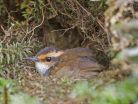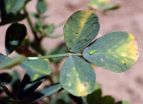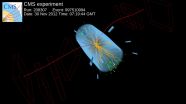UM study uncovers why songbirds vary in time devoted to warming eggs
2015-05-13
(Press-News.org) MISSOULA -- The amount of time and effort songbirds spend warming their eggs directly correlates to their own survival probability and that of their eggs, according to a study by University of Montana researchers that will appear in an upcoming issue of The American Naturalist.
The amount of care parents provide their young varies greatly across the animal kingdom, particularly among songbird species, who spend anywhere from 20 percent to nearly 100 percent of daylight hours warming eggs in their nests. A team of researchers led by Thomas Martin, senior scientist and professor at UM's Montana Cooperative Wildlife Research Unit, set out to discover why.
"The reasons why species differ in how much care they provide their young has long been a mystery and of interest to scientists, given that it influences the quality and survival of offspring," Martin said.
The researchers studied parental-care behaviors, egg temperatures and adult mortality rates in 63 species of songbirds. The study, which spanned two decades and four continents, found that longer-living species with more future opportunities for breeding, which are common in the tropics, were less willing to expend energy and risk mortality associated with keeping their eggs warm.
Conversely, species with shorter lives put much more effort into caring for their young because they may not have another opportunity to reproduce. In both cases, the songbirds balance longevity against the risk of their eggs being eaten by predators. Species with a higher likelihood of their eggs being preyed upon invested more effort in keeping their eggs warmer, as warmer eggs take less time to hatch, shortening the time the embryos were exposed to the risk of predation.
Songbird species differ in their risk of predation mainly based on where they nest. Species that nest in cavities in trees, for example, have very low risk of predation, while species that build an open cup exposed on a shrub have a much higher risk.
The species studied varied extensively in the time and effort they spent warming their eggs. Some, such as the Bornean stubtail, endemic to the tropical island Borneo, spend as little as 20 percent of the first seven hours of daylight warming their eggs. Others, such as the warbling vireo, common throughout North America, spend nearly 100 percent of those hours incubating their eggs.
INFORMATION:
The study, titled "Adult mortality probability and nest predation rates explain parental effort in warming eggs with consequences for embryonic development time," is online at http://www.jstor.org/stable/amernatu.ahead-of-print and will be published in The American Naturalist in August.
Graduate students Juan Oteyza, Andrew J. Boyce and Riccardo Ton of the Montana Cooperative Wildlife Research Unit also participated in the study.
For more information call Martin at 406-243-5372 or email tom.martin@umontana.edu.
[Attachments] See images for this press release:

ELSE PRESS RELEASES FROM THIS DATE:
2015-05-13
Cats may hold vital clues about the health benefits of vitamin D, a study suggests.
Researchers found that higher levels of vitamin D are linked to better survival chances for hospitalised pet cats.
Cats could prove useful for investigating the complex link between vitamin D and a range of health problems that also affect people, the researchers say.
The findings may also help vets to give owners better advice about their pets' prognosis, according to researchers at the University of Edinburgh's Royal (Dick) School of Veterinary Studies.
Researchers examined blood ...
2015-05-13
Eighty percent of a population of Burmese long-tailed macaques on an island in southern Thailand use stone and shell tools to crack open seafood, and do so using 17 different action patterns, according to a study published May 13, 2015 in the open-access journal PLOS ONE by Amanda Tan from Nanyang Technological University, Singapore, and colleagues, under an 8 year field project led by Michael D Gumert, also from NTU.
The authors of the study explored variation in how Burmese long-tailed macaques used percussive stone and shell tools to hammer coastal foods on Piak Nam ...
2015-05-13
Investigators at the Stanford University School of Medicine have identified a pattern of gene activity that could help scientists create a blood test for quickly and accurately detecting whether patients are experiencing a deadly immune-system panic attack.
Sepsis is a whole-body inflammation syndrome set off when the immune system wildly overreacts to the presence of infectious pathogens. It is the leading cause of hospital deaths in the United States, accounting for nearly half of the total number, and is tied to the early deaths of at least 750,000 Americans each year. ...
2015-05-13
The potato leafhopper is a tiny insect--barely half the size of a grain of rice--with a bright lime green color that helps it blend in against plant leaves. Despite its unassuming appearance, this little pest causes big headaches for farmers across the eastern half of the United States. By feeding voraciously on many crops, including potatoes, green beans and alfalfa, the migratory potato leafhopper causes untold millions of dollars in damage every year.
Now, a study by entomologists at the University of Maryland and Queens College at the City University of New York ...
2015-05-13
Alcohol drunk by a mouse in early pregnancy changes the way genes function in the brains of the offspring, shows the recent study conducted at the University of Helsinki. The early exposure was also later apparent in the brain structure of the adult offspring. The timing of the exposure corresponds to the human gestational weeks 3-6 in terms of fetal development.
In addition, the exposure to alcohol was found to cause similar changes to gene function in other tissues of the infant mice. These results suggest that alcohol causes permanent changes to gene regulation in ...
2015-05-13
Two experiments at the Large Hadron Collider at the European Organization for Nuclear Research (CERN) in Geneva, Switzerland, have combined their results and observed a previously unseen subatomic process.
As published in the journal Nature this week, a joint analysis by the CMS and LHCb collaborations has established a new and extremely rare decay of the Bs particle (a heavy composite particle consisting of a bottom antiquark and a strange quark) into two muons. Theorists had predicted that this decay would only occur about four times out of a billion, and that is roughly ...
2015-05-13
Benign prostatic hyperplasia (BPH) -- or, simply, prostate enlargement -- is one of the most common diseases of aging among men in the United States. In fact, by the time they hit 80 or above, upwards of 90 percent of all men in the U.S. experience some degree of prostate enlargement. And of those, 40 percent require medical treatment.
Despite the fact that the disease impacts so many people and carries with it a huge price tag -- estimated at tens of billions of dollars per year in medical expenses and lost wages, among other costs -- the factors that contribute to BPH ...
2015-05-13
For the first time, satellite mapping of Latin America shows that the continent's agricultural expansion has waned in the wake of the global economic downturn, according to UBC research.
"Nearly every agricultural region across Latin America slowed down in expansion from 2007 to 2013, compared to the previous six years," says Jordan Graesser, the study's lead author. Graesser is a visiting international student at UBC's Liu Institute for Global Issues and the Institute for Resources, Environment and Sustainability.
The study, recently published in Environmental Research ...
2015-05-13
ITHACA, N.Y. -- If you're planning to fly over the holiday, plan to drink some tomato juice. While examining how airplane noise affects the palate, Cornell University food scientists found sweetness suppressed and a tasty, tender tomato surprise: umami.
A Japanese scientific term, umami describes the sweet, savory taste of amino acids such as glutamate in foods like tomato juice, and according to the new study, in noisy situations -- like the 85 decibels aboard a jetliner -- umami-rich foods become your taste bud's best buds.
"Our study confirmed that in an environment ...
2015-05-13
PITTSBURGH -- A research team led by the University of Pittsburgh's Jeremy Levy has discovered electrons that can "swing dance." This unique electronic behavior can potentially lead to new families of quantum devices.
Superconductors, materials that permit electrical current to flow without energy loss, form the basis for magnetic resonance imaging devices as well as emerging technologies such as quantum computers. At the heart of all superconductors is the bunching of electrons into pairs.
Levy, Distinguished Professor of Physics and Pittsburgh Quantum Institute director, ...
LAST 30 PRESS RELEASES:
[Press-News.org] UM study uncovers why songbirds vary in time devoted to warming eggs



